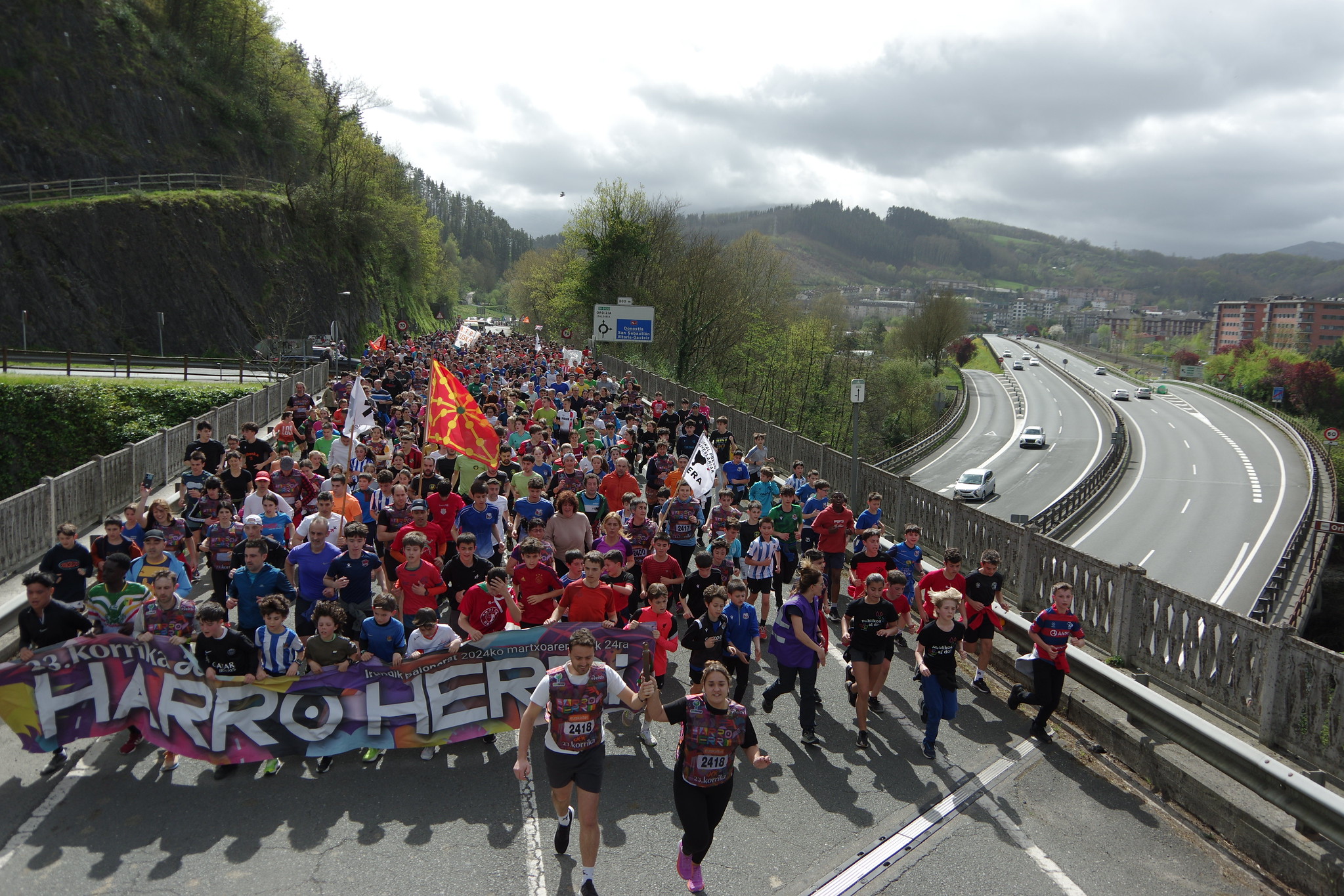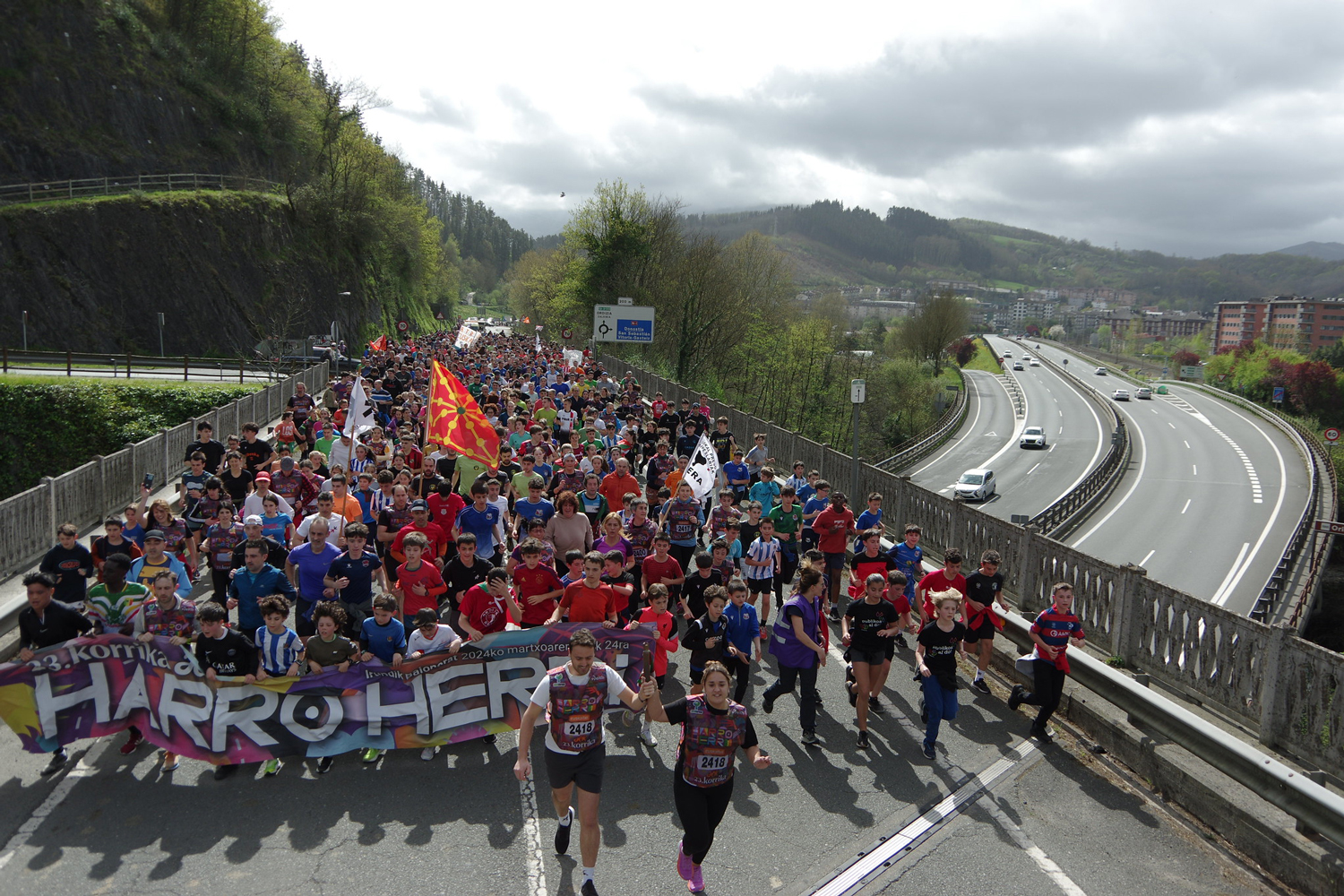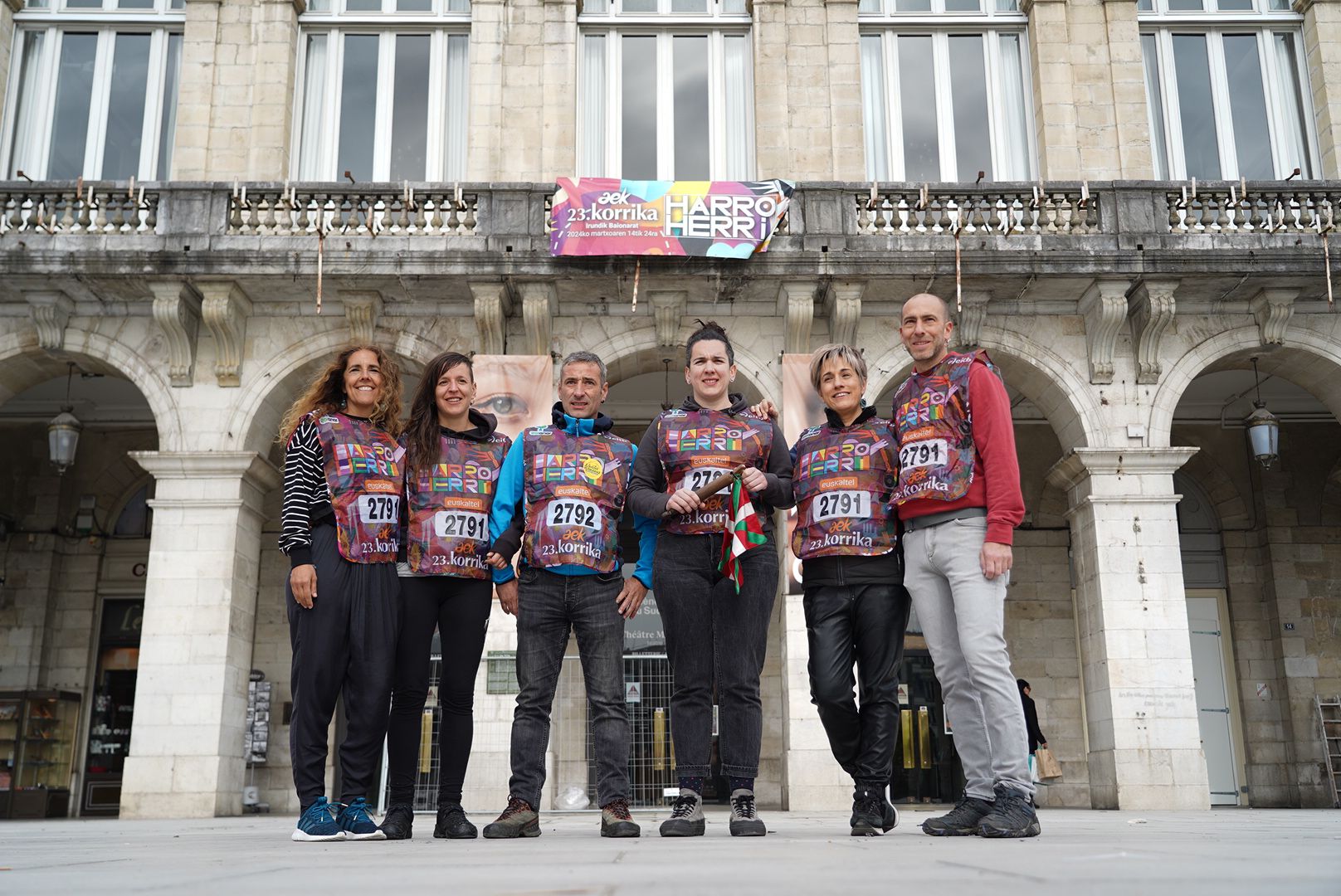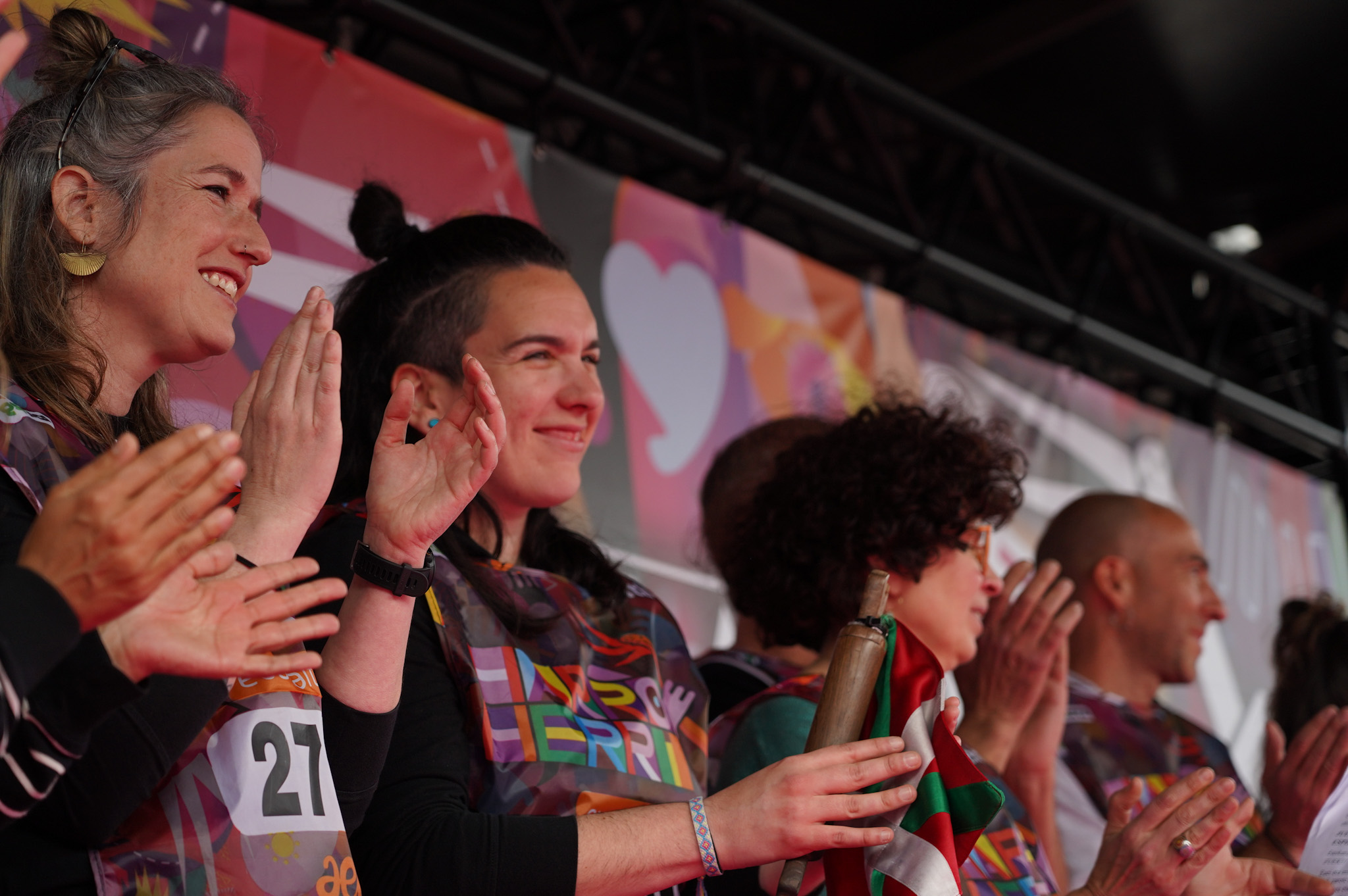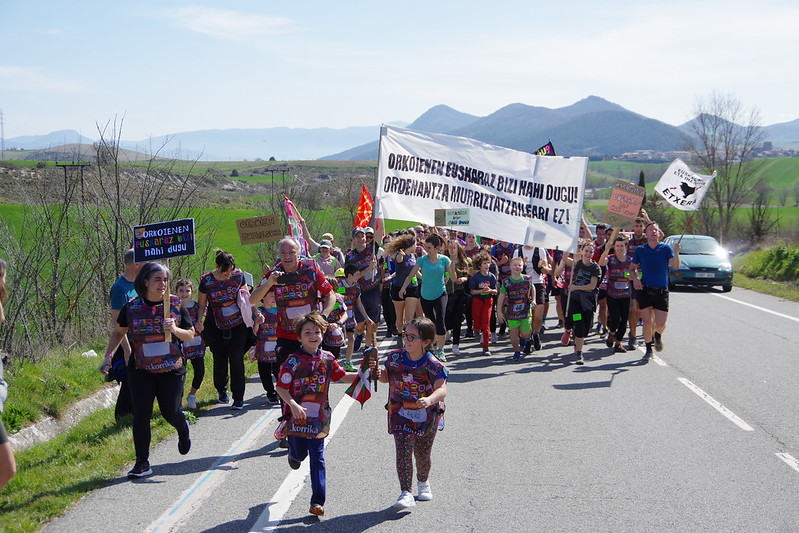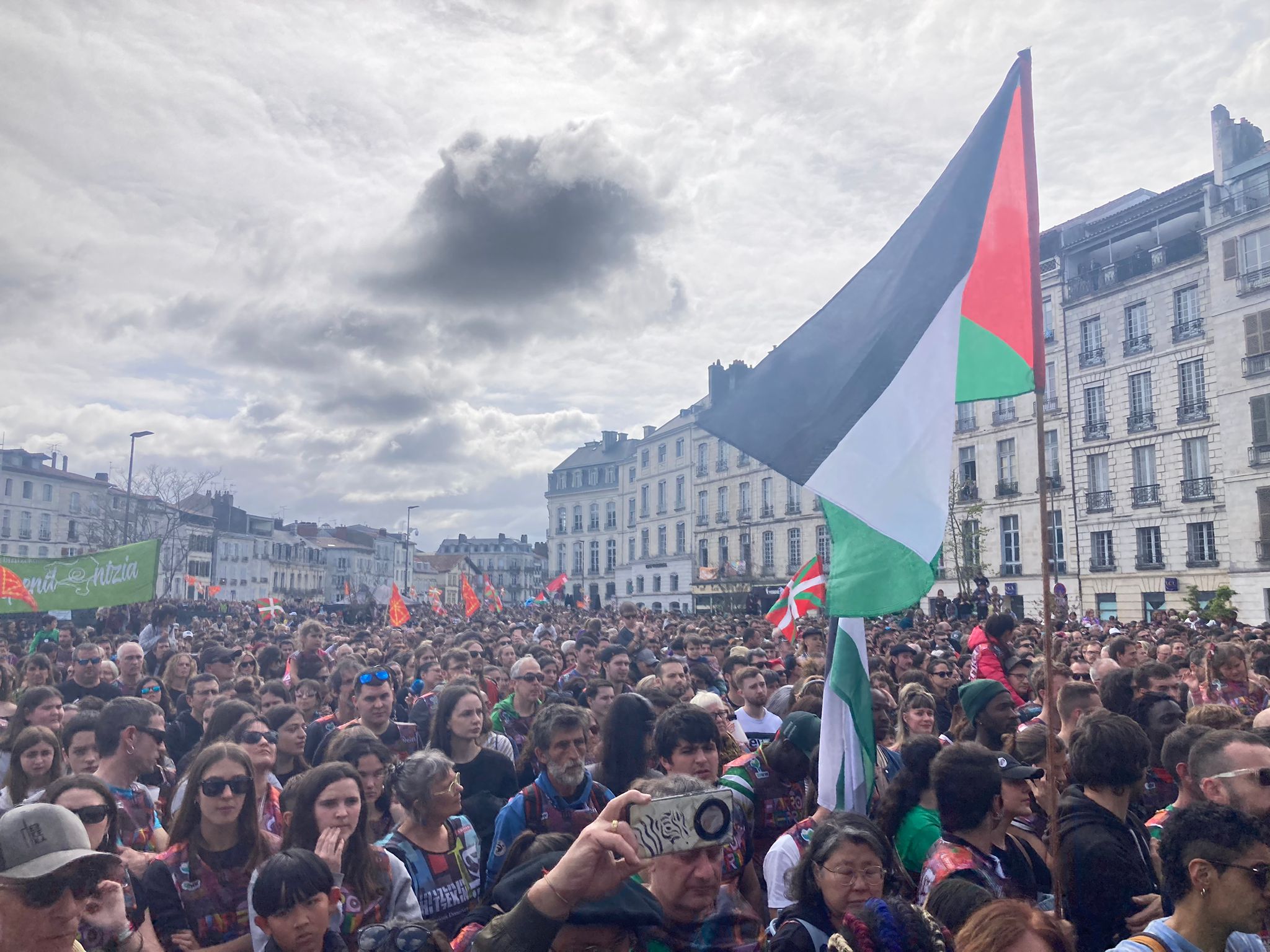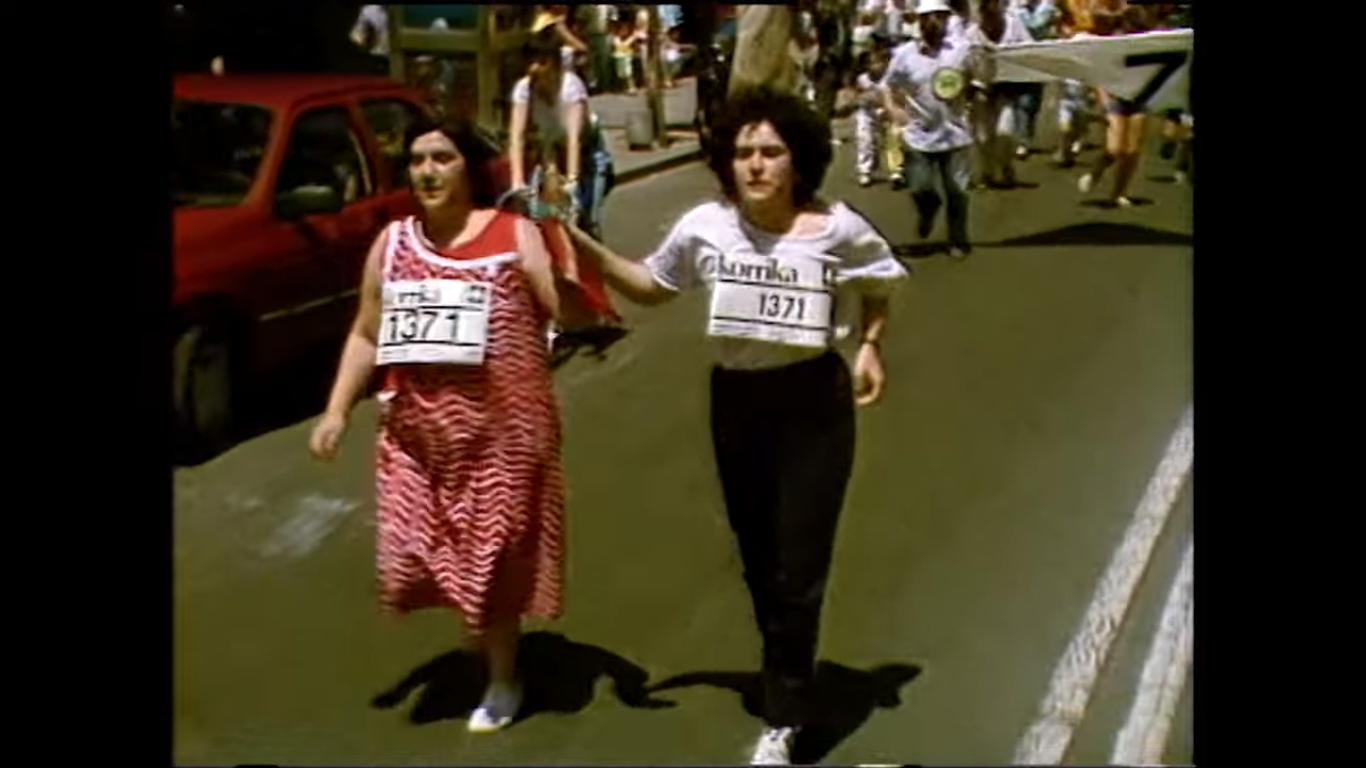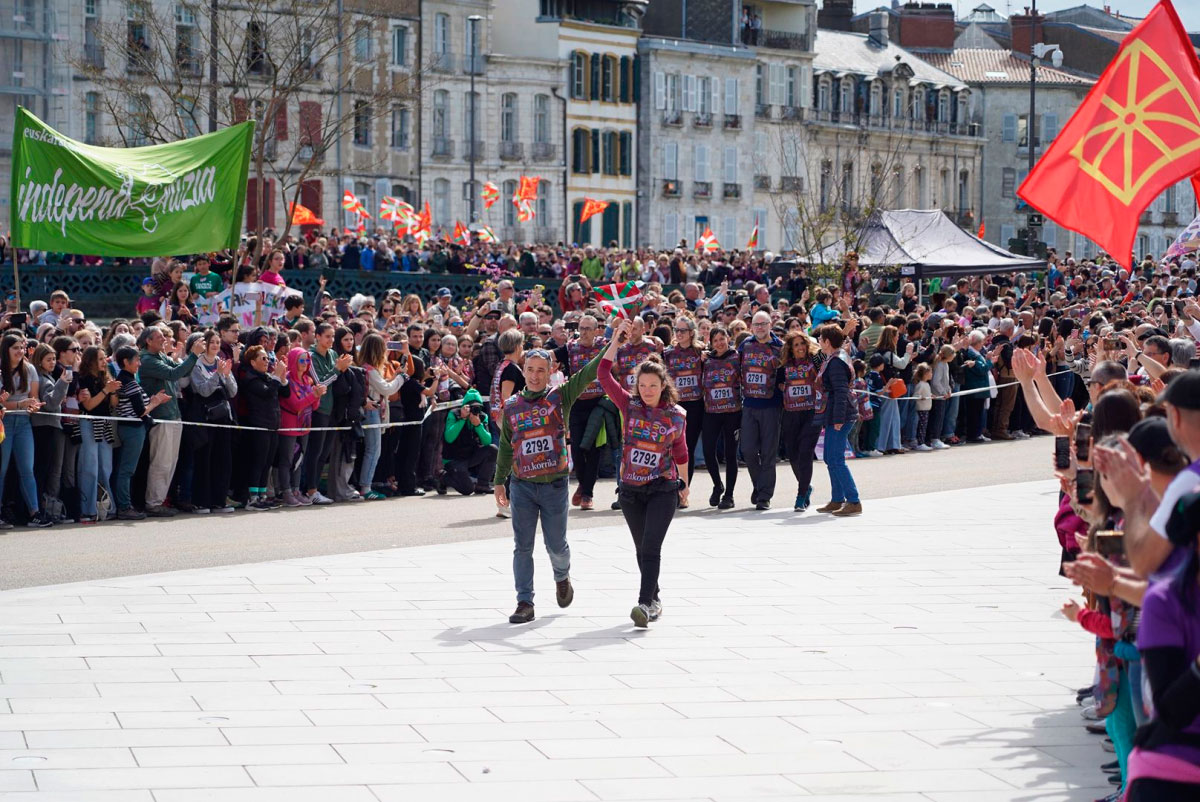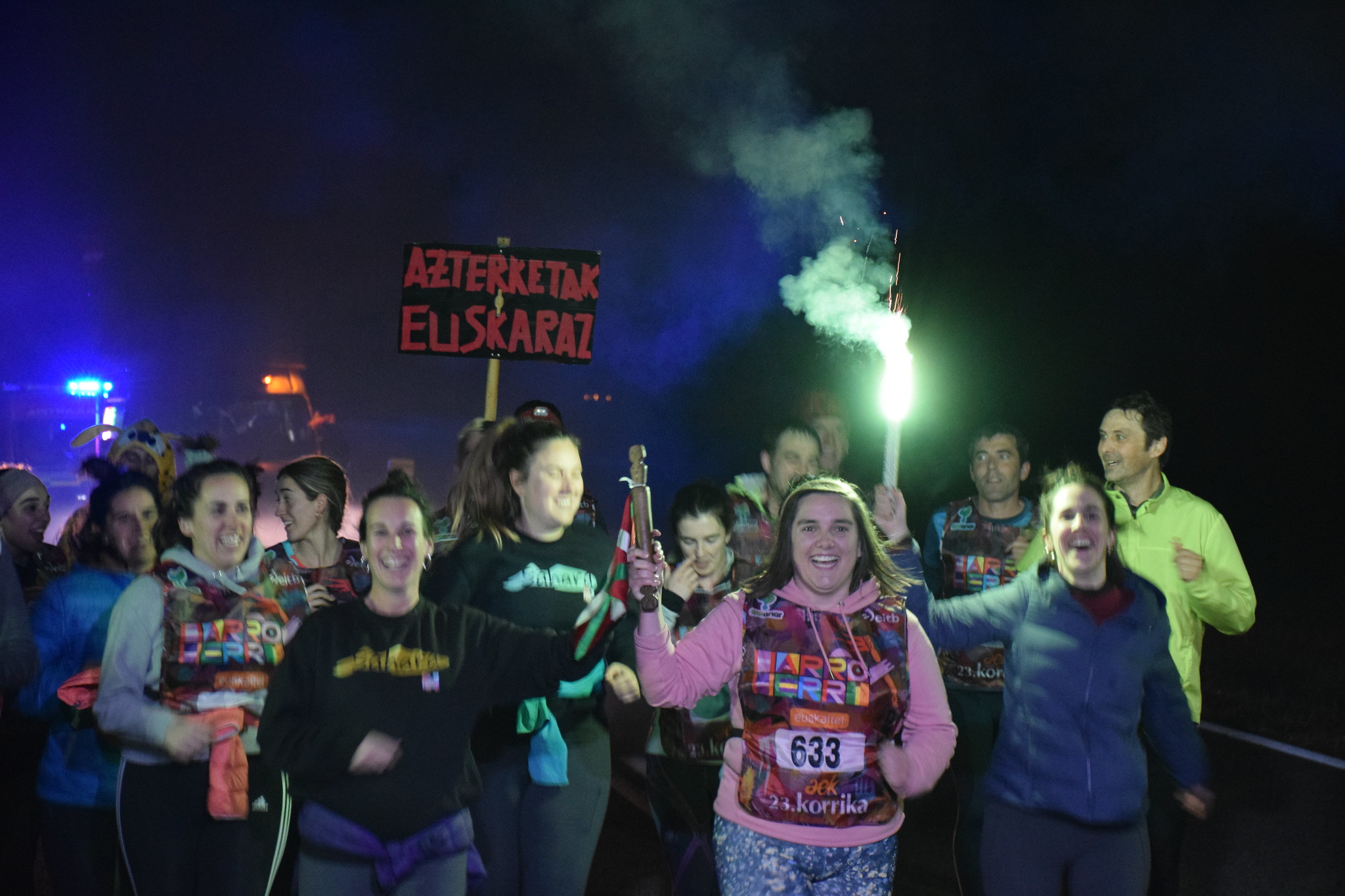Korrika in Araba

Not more than a year living in Vitoria when I first saw Korrika. It was daylight, I was carrying my daughter in a backpack, and a bunch of speakers around me, and among those friends, Rosa, who is still beside me. About her daughter, what to say, is almost 14 years old, and in the last edition, in the snow, it was she who brought the witness. This year Kutxi went ahead with some of his friends.
Last week, when I was in the schoolyard talking to a mother I met many years ago, she explained to me, "I want to go running, I really like it. Korrika has something special. When I was growing up, my mother worked a lot, didn't do a lot with us, but I remember how we went with her to Korrika and I also remember her clothes."
A few years ago, I was in a small Algerian town with a talk of feminist women. The Korrika was just about to start, and in that edition he did not have to go through his people. "It doesn't matter," they said, "we go to the nearest village, it doesn't matter what time, we always do the same." This year, yes, he has been running through his people and I have remembered them.
On Monday, at last, the Korrika entered Álava, or as my little daughter said, that "long demonstration." We had television on almost all day. Through our friendly landscapes, with a nice sun, people got together from village to village. In all of these small towns you could see who took along the kilometer; small groups, or large groups, youth assemblies, cultural groups, or municipalities, or just the name of the village, and seeing that kilometer per kilometer was very relaxing and rewarding.
Korrika is a demand for the Basque people, but it also has to do with the desire to be part of a people
When he entered the Alavesa capital, the neighbors of our neighborhood were gathered on the fronton of the school, that of a school in Vitoria. We saw on a screen how it approached and approached from places as close as Abetxuko, Zabalgana, Adurza, Judimendi... We met on the screen many faces and all the slogans with banners. There were a lot of people everywhere -- schools, institutes, different associations -- they did it. The Korrika of Vitoria saw the popular organization.
So it's time to get to our neighborhood. Just the kilometer we had next to our house. Our house is located in some buildings built in the 1980s, which once were officially protected housing. When we were at the point of transmission of the witness, we saw the neighbor of our house, the dog walking. "Hello, is there a long way to go?" He didn't mention Korrika's name, because we all knew what he was talking about. It was the first time he spoke to us in Basque, the last big surprise of yesterday.
Running is a demand for the Basque people, but it also has to do with the desire to be part of a people. It even has a lot to do with the need to build common spaces and the desire to keep in common memories that connect us with others. Because is there something that unites us more than the memories we have together?
Korrikaren "bihotza eta burua" erakutsiko ditu dokumentalak. Proiektua gauzatzeko, herritarren babesa "ezinbestekoa" izango dela adierazi dute AEK eta Mirokutana ekoiztetxeak, eta apirilaren 25era bitartean crowdfunding kanpaina bat abiatuko dute jalgihadi.eus... [+]
We Basques move our feet behind the witness of Korrika to proclaim that we want to survive as a Basque people in favor of our language, with the aim of the Basque Country we desire.
The tipi-tapa is the first step taken by a migrant person who leaves his homeland in Africa,... [+]
For eleven days, from 14 to 24 March, the corners of Euskal Herria will run 23 March. Running. Photographs sent by AEK are being collected in this gallery.








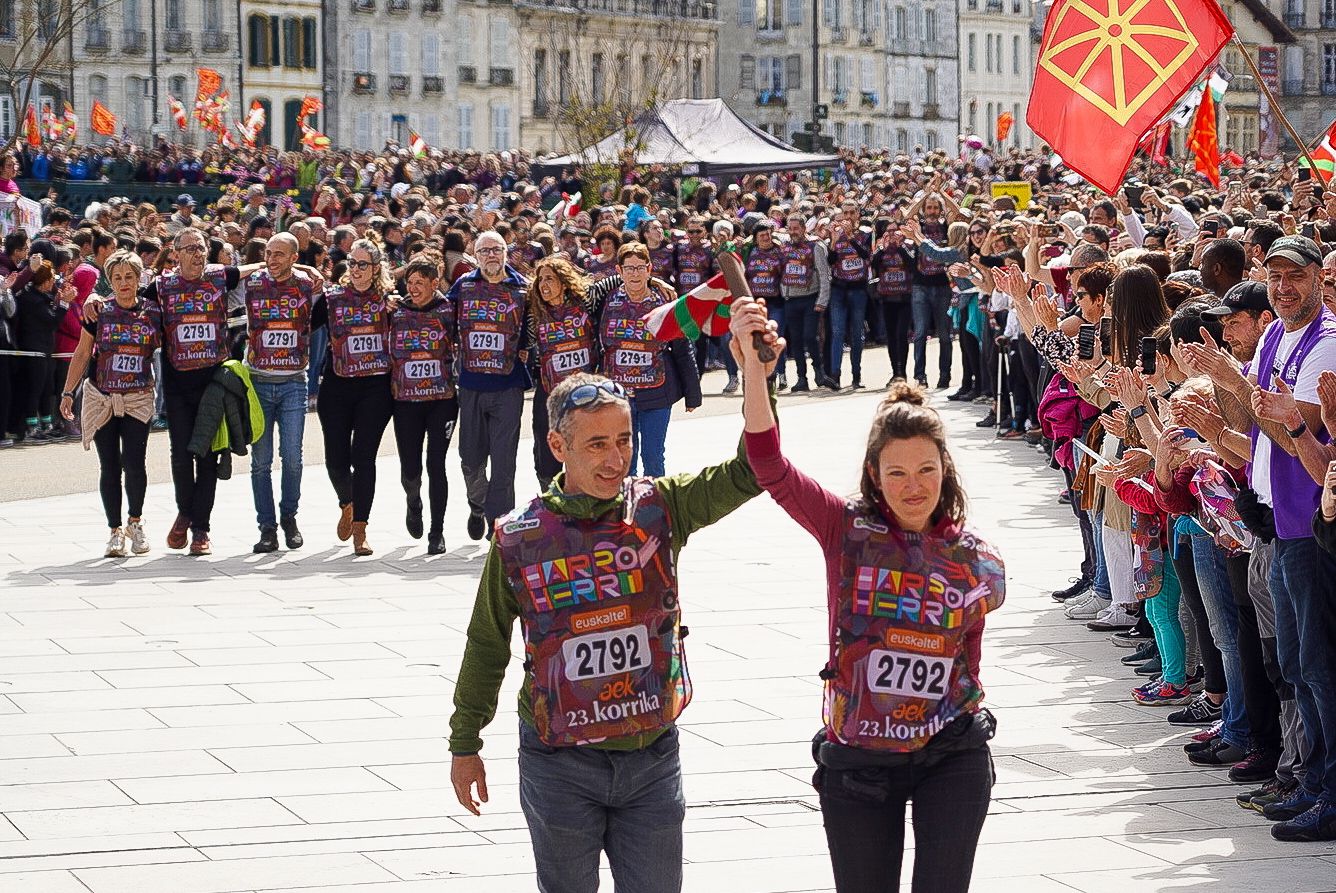
.jpg)

